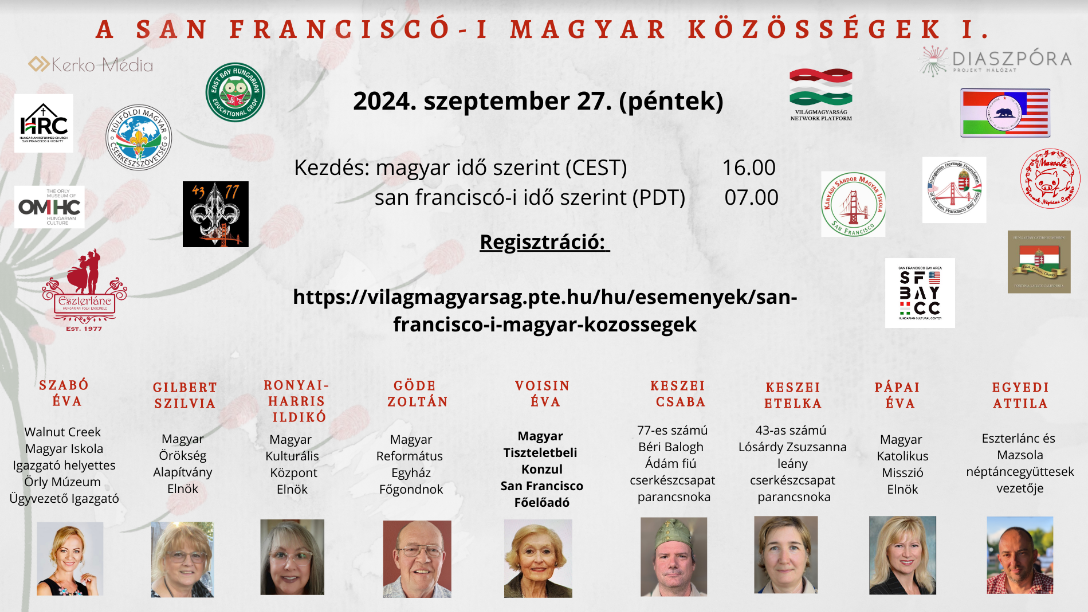
On 27 September an online conference organized jointly by the Diaspora Project Network of the University of Pécs and Kerko Media Ltd. featured Hungarian communities in San Francisco and its vicinity. The livestreamed discussion, followed in more than ten countries, was an impressive presentation of the diverse voluntary activities and exemplary cooperation of Hungarian organizations.
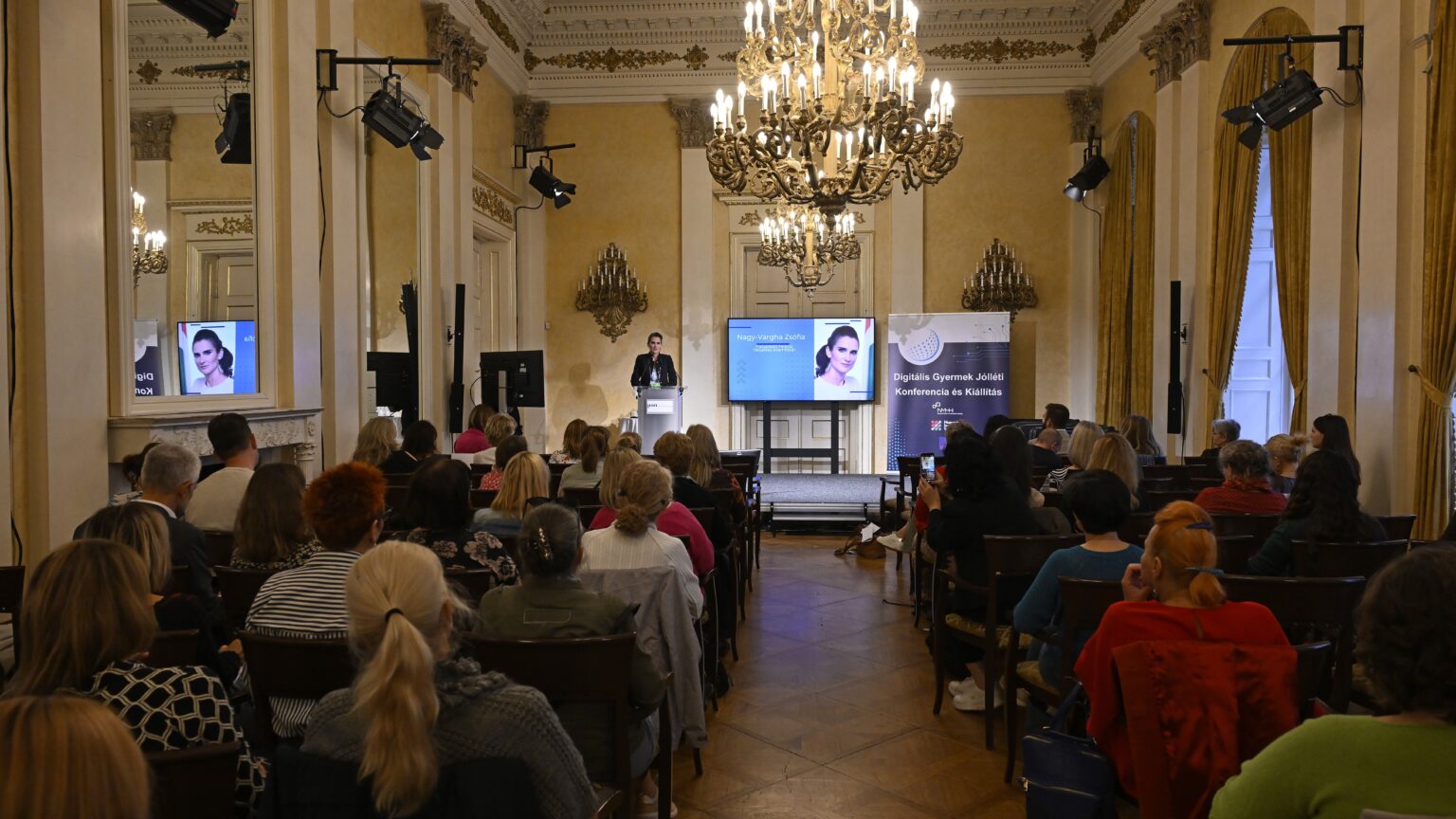
Despite spending a significant amount of time online, young people, particularly Generation Z, feel the absence of real communities, according to Zsófia Nagy-Vargha, Deputy State Secretary for Youth Affairs. Addressing the Digital Child Welfare Conference in Budapest, she emphasised the need to reduce digital dependency and promote more meaningful, in-person interactions among the youth.

The Balaton shippimg company BAHART ended its peak season on a high note, surpassing two million passengers by the end of August, a milestone attributed to new ships, a diverse programme offering, and special discounts. Bahart’s ferries and passenger ships saw record traffic, with the introduction of new catamarans and ferries boosting growth beyond expectations.
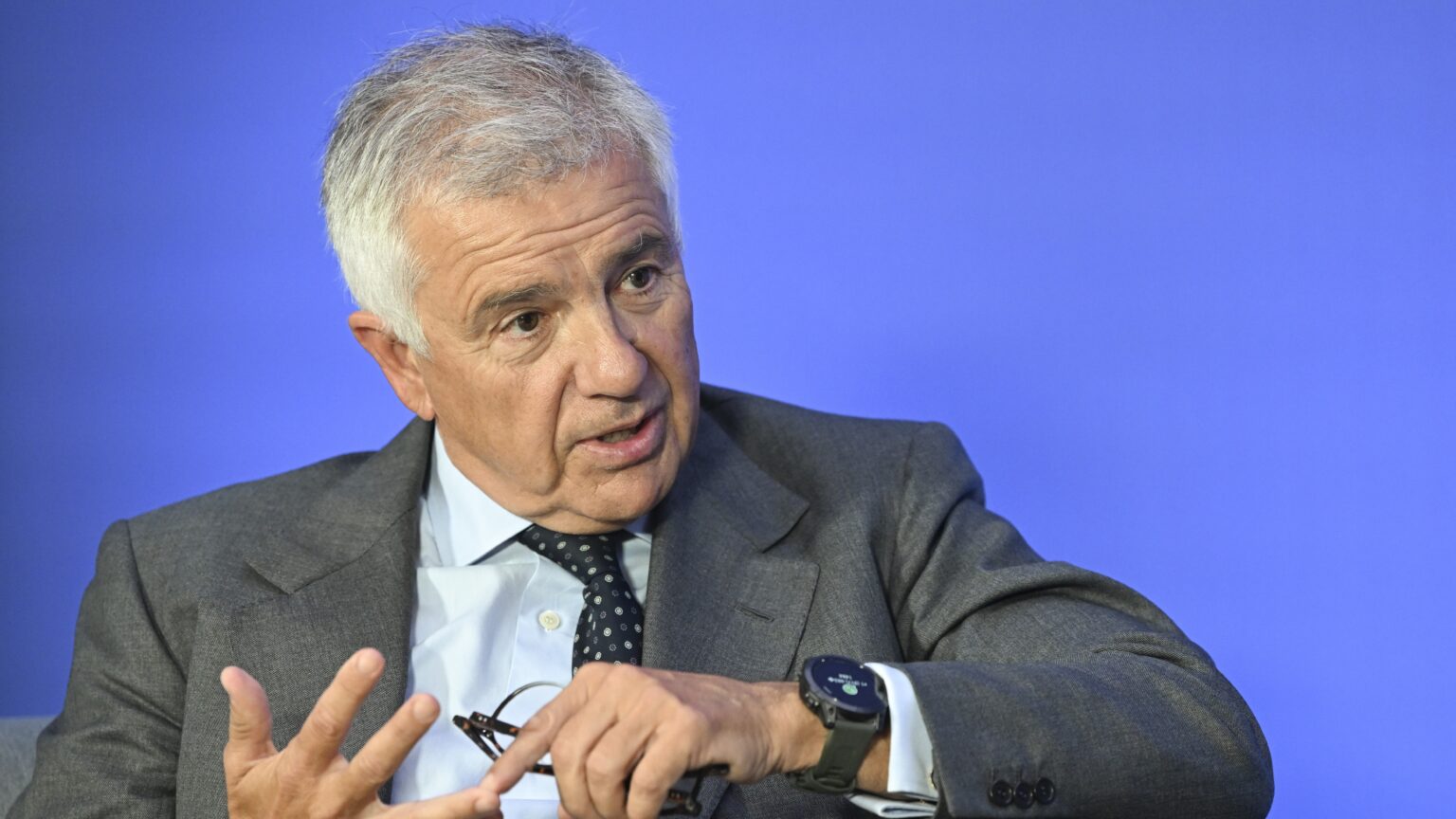
In a recent interview with Hungarian sports daily Nemzeti Sport Juan Antonio Samaranch Jr said he believes there needs to be a holistic solution to protect biological women from unfair competition; and that he thinks no-one would be surprised if Budapest made a bid for hosting the Olympic games, given its success in hosting major sporting events in recent years.

The hackathons provide an opportunity for young people to turn their ideas into reality. The transfer of entrepreneurial basics, the encouragement of innovation, and the fostering of creative problem-solving equip them with tools that can address social and economic challenges. This knowledge not only leads to individual success but also contributes to community well-being, sustainable development, and enhancing the region’s competitiveness.

Kenya’s approach to religious diversity is equally remarkable. It is a deeply Christian country, yet the coastal region, like much of East Africa, is mixed, even Muslim-majority in some areas. Despite this, there is an almost unique religious harmony. Mosques and churches coexist peacefully, and schoolgirls, whether in hijab or not, walk to school together as friends.

Both Emese and her husband, László Kerkay have been cultivators of the rich Hungarian historical and cultural heritage and overall active contributors to the life of the Hungarian community of Passaic, New Jersey, having served at the Hungarian school for over 30 years: Emese as teacher and principal, László as treasurer. Emese has also been an active scout since the age of six and was a founding member and for 25 years curator of the American Hungarian Museum of Passaic.

According to a recent study by Hungary’s National Media and Infocommunications Authority (NMHH), frequent TikTok use negatively impacts the ability of young people aged 13–25 to recognize fake news. The study highlights the platform’s influence on critical thinking, revealing that extended TikTok usage diminishes the accuracy with which users assess information.
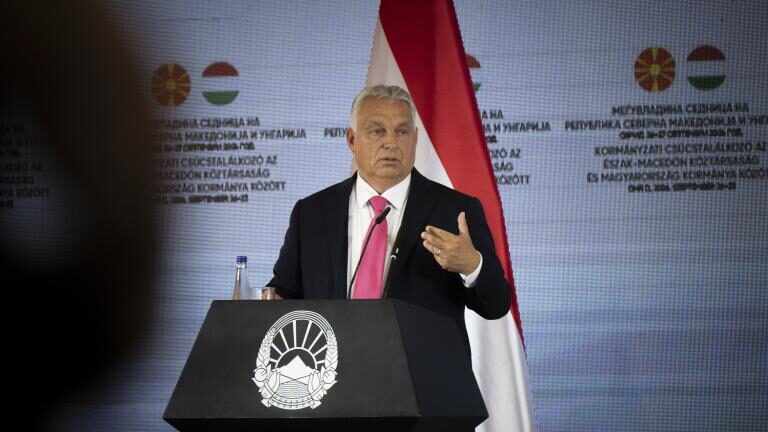
Viktor Orbán paid an official visit to North Macedonia, where he also attended a joint meeting of the Hungarian and North Macedonian governments. Discussions focused on the Balkan country’s EU accession and the fight against illegal migration. The Hungarian PM stated that it is in the EU’s vital interest to complete the integration of the Balkan region as swiftly as possible.

‘Ukraine is losing this war, indeed has likely lost it, and Washington is looking for a scapegoat for its colossal strategic failure. Viktor Orbán, who was right about this war from the beginning, is that scapegoat. If Harris wins in November, we can expect a narrative coming out of Washington saying that Ukraine and its allies would have prevailed if it had not been for Hungary stabbing Ukraine in the back.’
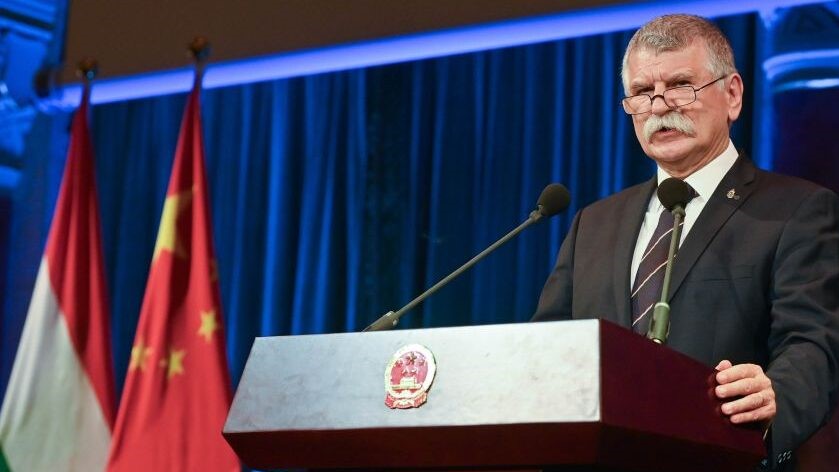
Hungary and China are celebrating the 75th anniversary of the establishment of diplomatic relations between the two countries in 2024. To mark the occasion a reception was held in Budapest, where House Speaker László Kövér stated that the deepening of Sino–Hungarian cooperation is not a threat, but an opportunity.

The world-famous American soft drink company Coca-Cola has received a lot of backlash from its Christian customers in the United States after it was discovered that the word ‘Jesus’ was not allowed to be put on the cans in their personalized can campaign, but the names of other religious figures, such as Allah. Buddha, and even Satan, were allowed.

In a recent podcast, Balázs Orbán drew a comparison between the 1956 Revolution and the war in Ukraine. His remarks, taken out of context and misinterpreted, were swiftly exploited to smear the government of Hungary. Prime Minister Viktor Orbán responded by stressing that the war in Ukraine must not be allowed to overshadow the memory of the heroes of 1956, and that Hungary’s position must always be articulated accurately and unambiguously.
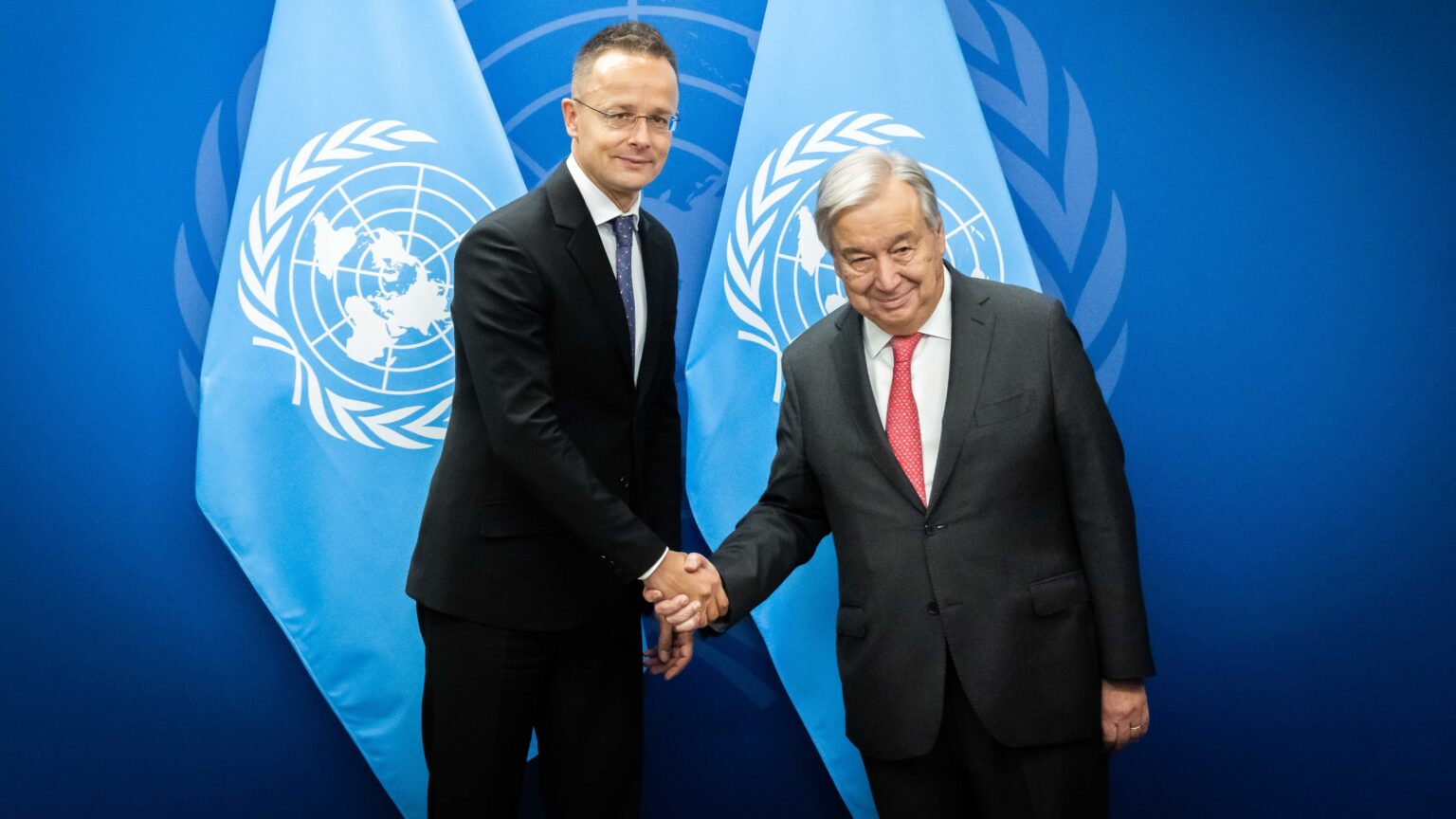
Hungary’s Foreign Minister Péter Szijjártó called on UN Secretary-General António Guterres to mediate a dialogue between the United States and Russia. Following talks in New York, Szijjártó emphasized the pressing global security risks posed by the lack of communication between major powers, warning of the danger of a new Cold War and urging a return to the UN’s founding mission of fostering international dialogue.

The Hungarian Ministry of Energy has confirmed that the reduced utility prices will remain in effect during the final quarter of 2024, ensuring that Hungarian households continue to enjoy the cheapest gas in Europe. By updating the relevant regulations, the ministry aims to secure affordable and uninterrupted heating throughout the upcoming winter season.
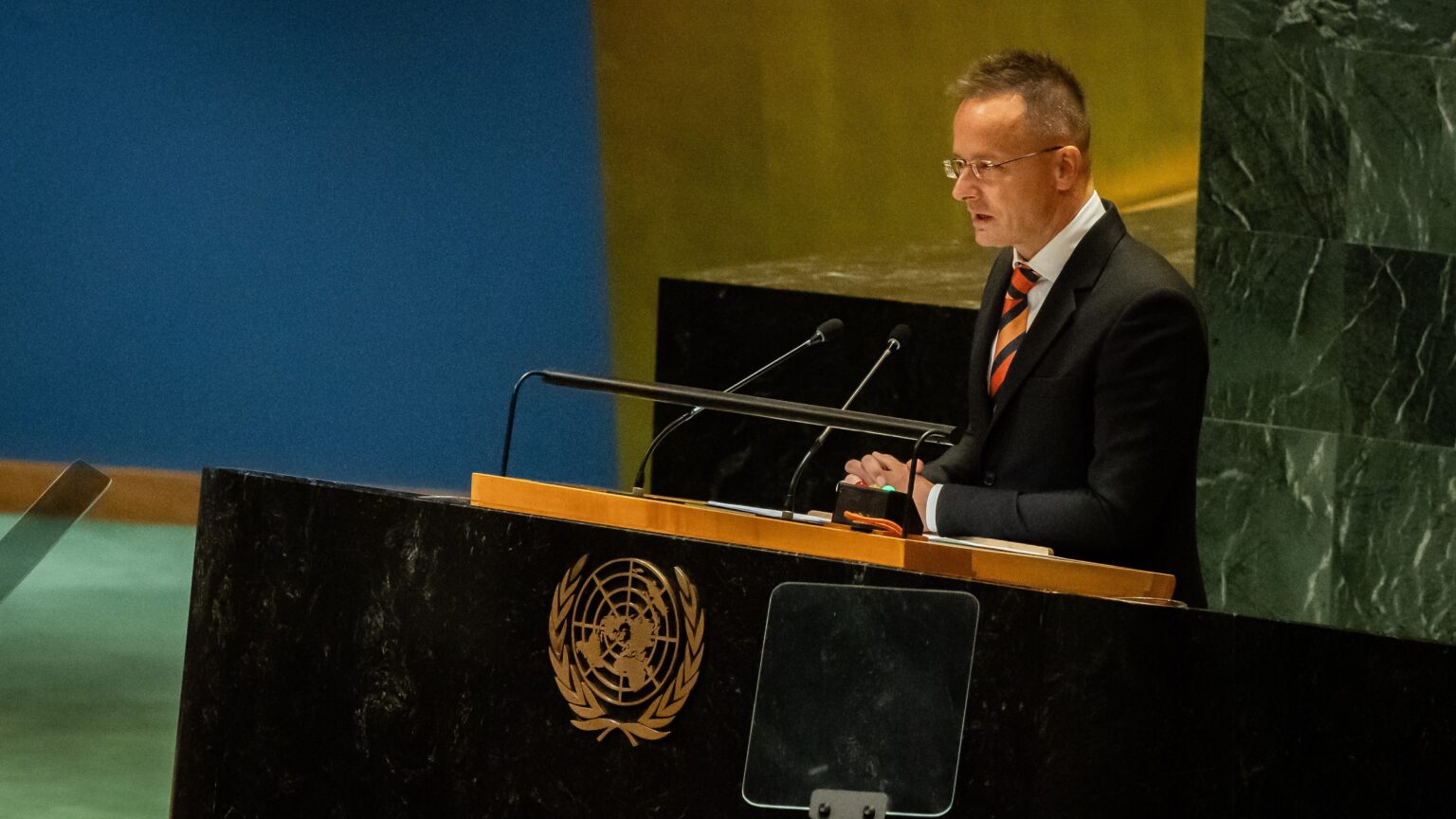
In a recent interview with the Jewish News Syndicate outlet conducted in New York, Hungarian Foreign Minister Péter Szijjártó underlined that Israel is ‘a strategic partner, a strategic ally’ to Hungary, while Budapest has a ‘pragmatic, practical relationship’ with Iran, based on economic cooperation. However, ‘it is obvious that on many issues, we see the world in a totally different way,’ he clarified.

Péter Magyar of the Hungarian TISZA Party is trying to hand the Fidesz-KDNP coalition its first electoral defeat in twenty years while carrying unprecedented personal baggage with him. After his ex-wife, his recent ex-girlfriend has also come public with allegations of domestic abuse against him. This all comes following leaked footage showing him in a nightclub, dancing with girls much younger than him.
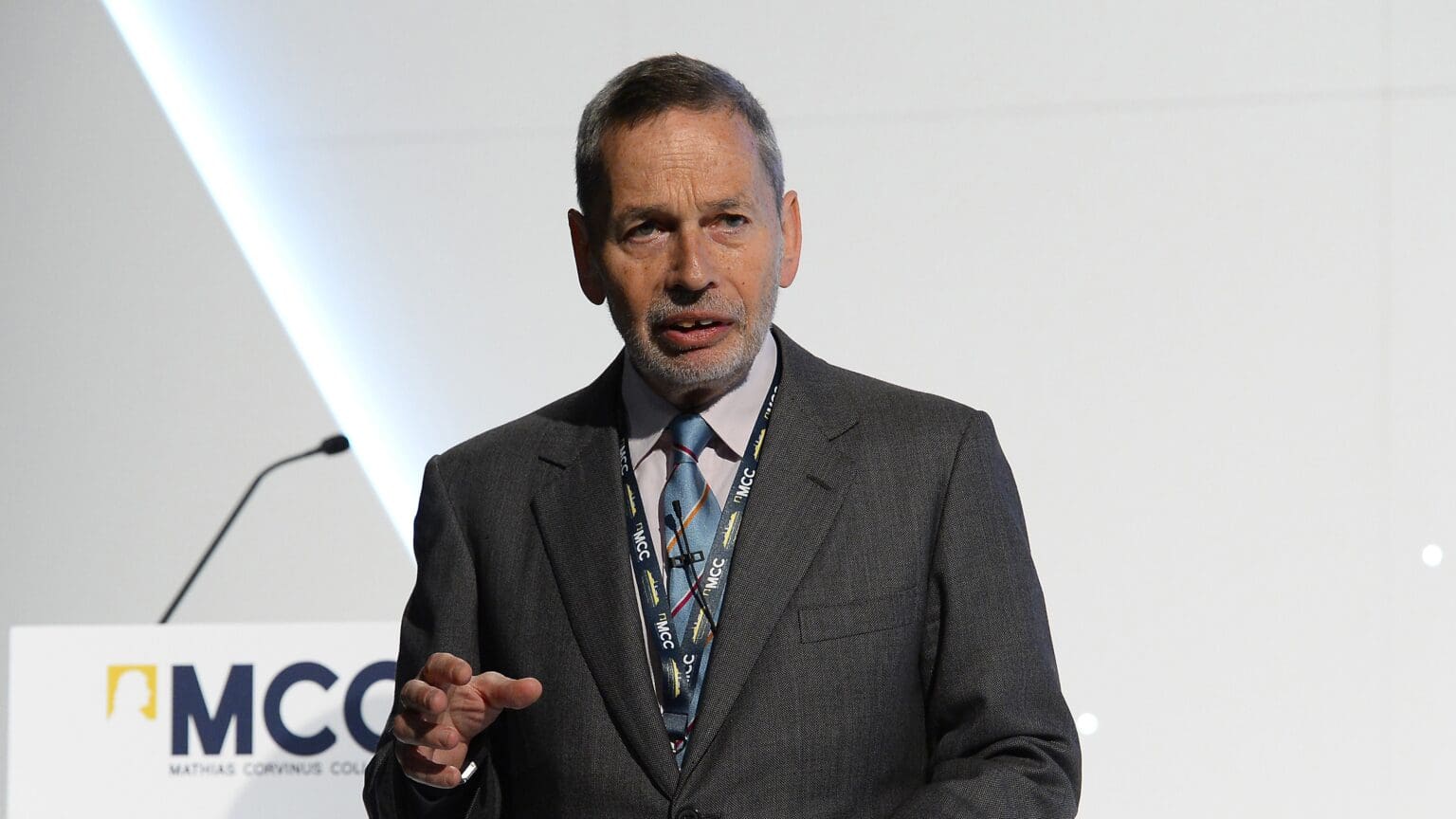
The launch of MCC Brussels Director Frank Füredi’s latest book was cancelled at a Brussels bookshop on the day of the event, presumably due to left-wing political pressure. The situation closely mirrors the controversy surrounding the National Conservatism Conference in April, when a Brussels district mayor attempted to use police force to suppress right-wing voices.

The Day of Coffee will celebrate its twelfth edition in Hungary, offering coffee enthusiasts unlimited tastings of top-quality, specialty coffees, professional competitions, and exclusive pairings at Budapest’s Akvárium Klub. The event marking International Coffee Day is a unique opportunity to discover diverse coffee varieties, meet roasters, and enjoy interactive programmes and contests.

Former President of Hungary Katalin Novák announced in early September that she will take on new responsibilities, continuing to address global demographic challenges as co-founder and co-CEO of the non-profit organization XY Worldwide. Novák recently met with Elon Musk and Giorgia Meloni, where they discussed the possibility of the American billionaire supporting her new initiative.
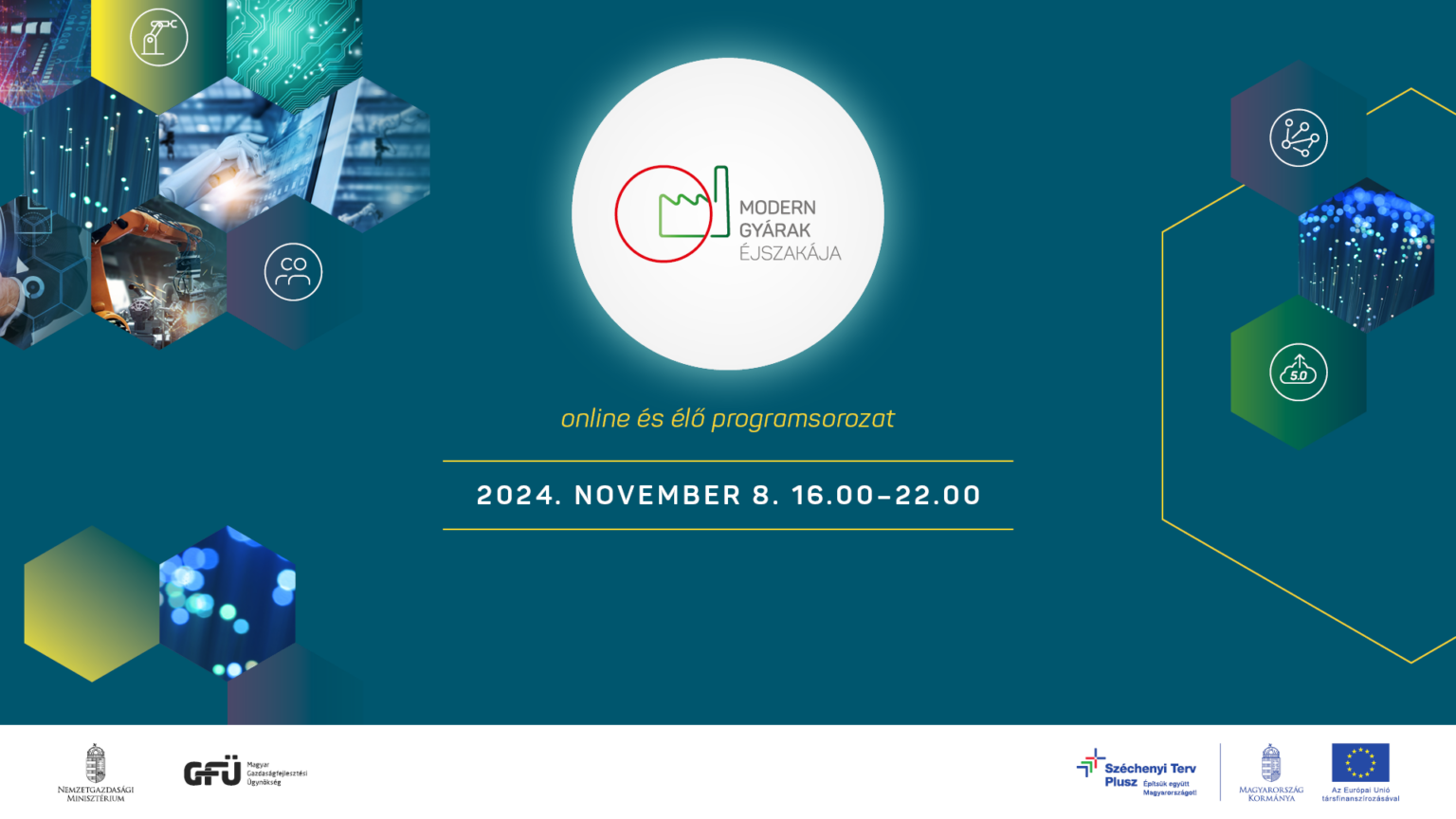
The Night of Modern Factories returns for its eighth edition on 8 November 2024, offering both personal and online experiences. Organized by a nonprofit organization in collaboration with the Ministry of National Economy, the event highlights how modern technology is reshaping production processes, allowing visitors to explore cutting-edge innovations in automation, robotics, and Industry 4.0 across Hungarian factories.

To support families who are raising or planning to have children, the government will introduce a new measure from 1 October to make it easier for self-employed people who opt for special taxation as well as for primary agricultural producers to claim the CSOK Plus and the Rural CSOK loans, and the baby expecting subsidy. The aim is to make these benefits more accessible to self-employed people. In their case, banks used to take only 10 to 20 per cent of their income into account when assessing their loan applications but will now be obliged to recognize at least 50 per cent of their earnings.

Users on X (formerly Twitter), corporate and private alike, were captivated by the images of the recent flooding of the Danube River in Budapest, Hungary. Photos of the flooded capital city spread across the social media site. Thankfully, the water levels have come down to normal since, and the flooding passed with no loss of human life.

As Minister for EU Affairs János Bóka also emphasized on 24 September, the Hungarian government is aware that the Commission has other tools at its disposal to deduct the sum. Despite not being willing to pay the fine, Budapest aims to engage in a ‘constructive way’ with Brussels to ensure compliance with the ECJ ruling. Minister Bóka also said Hungary was looking into ‘legal possibilities on how certain expenses incurred in the protection of the border could be offset’ against the penalty.

‘Hungary may well find, as Australia has, that trade and investment with China can create long-term vulnerabilities as well as immediate economic benefits. After Australia called for a transparent international enquiry into the origins of the Wuhan virus, the Beijing government imposed bogus safety bans on some $20 billion worth of our exports. Despite the Australian government’s attempts to “normalise” relations, there’s now routine harassment of Australian ships and planes exercising freedom of navigation in the areas Beijing wants to dominate.’

The European Commission is allocating approximately €10 billion in aid to flood-affected countries in Central and Eastern Europe, but Hungary is notably absent from the list. The reason is somewhat paradoxical: Hungary has been so effective in its protective measures that the resulting damage is expected to fall below the threshold required to qualify for the EU Solidarity Fund.

In his speech at the Ludovika University campus in Budapest Prime Minister Viktor Orbán said Hungary has taken over the rotating presidency of the EU Council in uniquely hard times. He warned about Europe’s decreasing level of competitiveness, and stressed Hungary’s need to remain economically neutral. He nailed down that Hungary needs to conduct itself on the new bipolar global economic stage based on its own national interests.
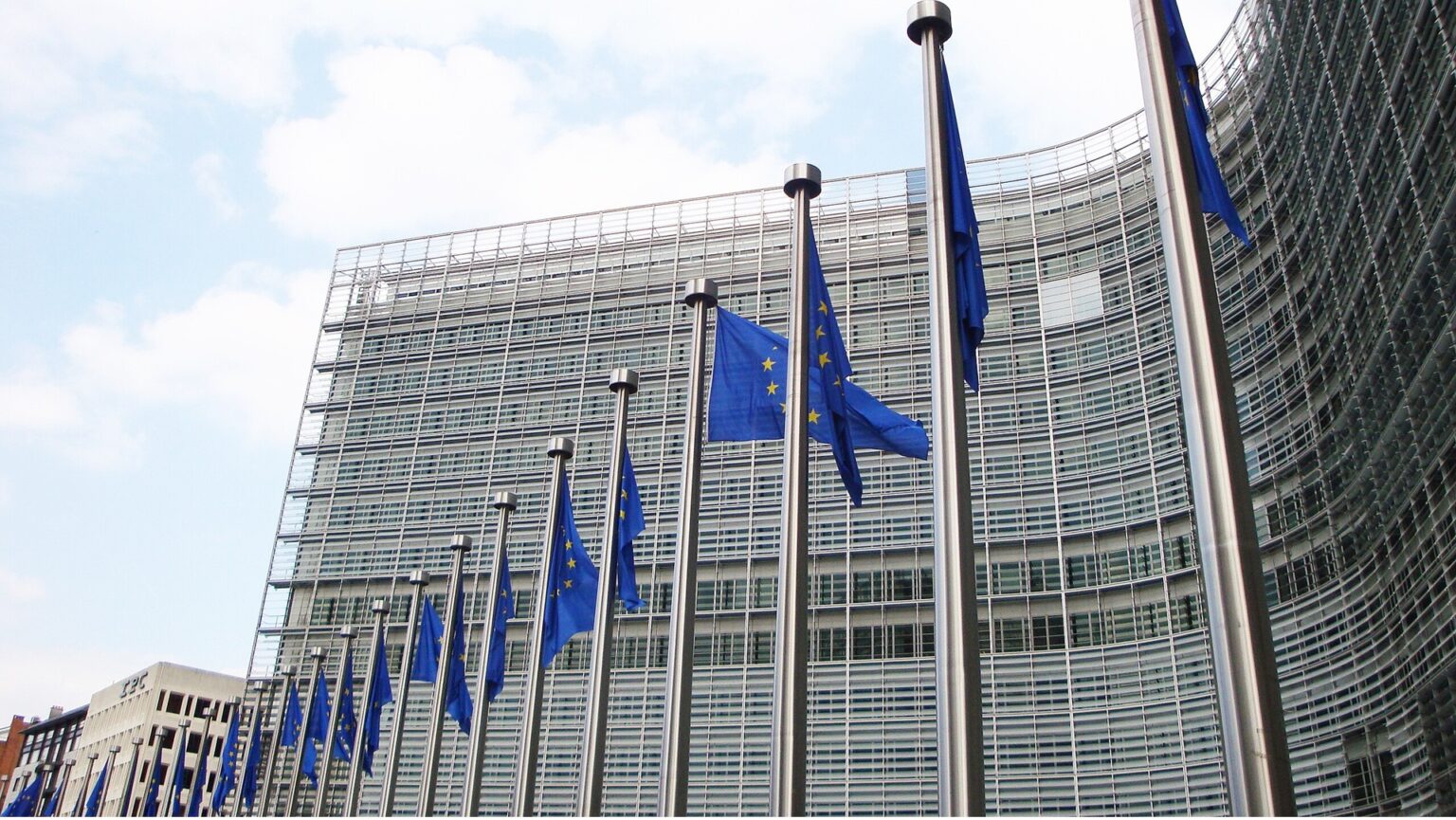
The European Court of Justice issued a €200 million fine, as well as additional fines of €1 million per day to Hungary for failing to comply with migrant quotas in June. Hungary has failed to pay up by the first deadline, so now the European Commission is looking to deduct the penalties from the EU funds due to Budapest.
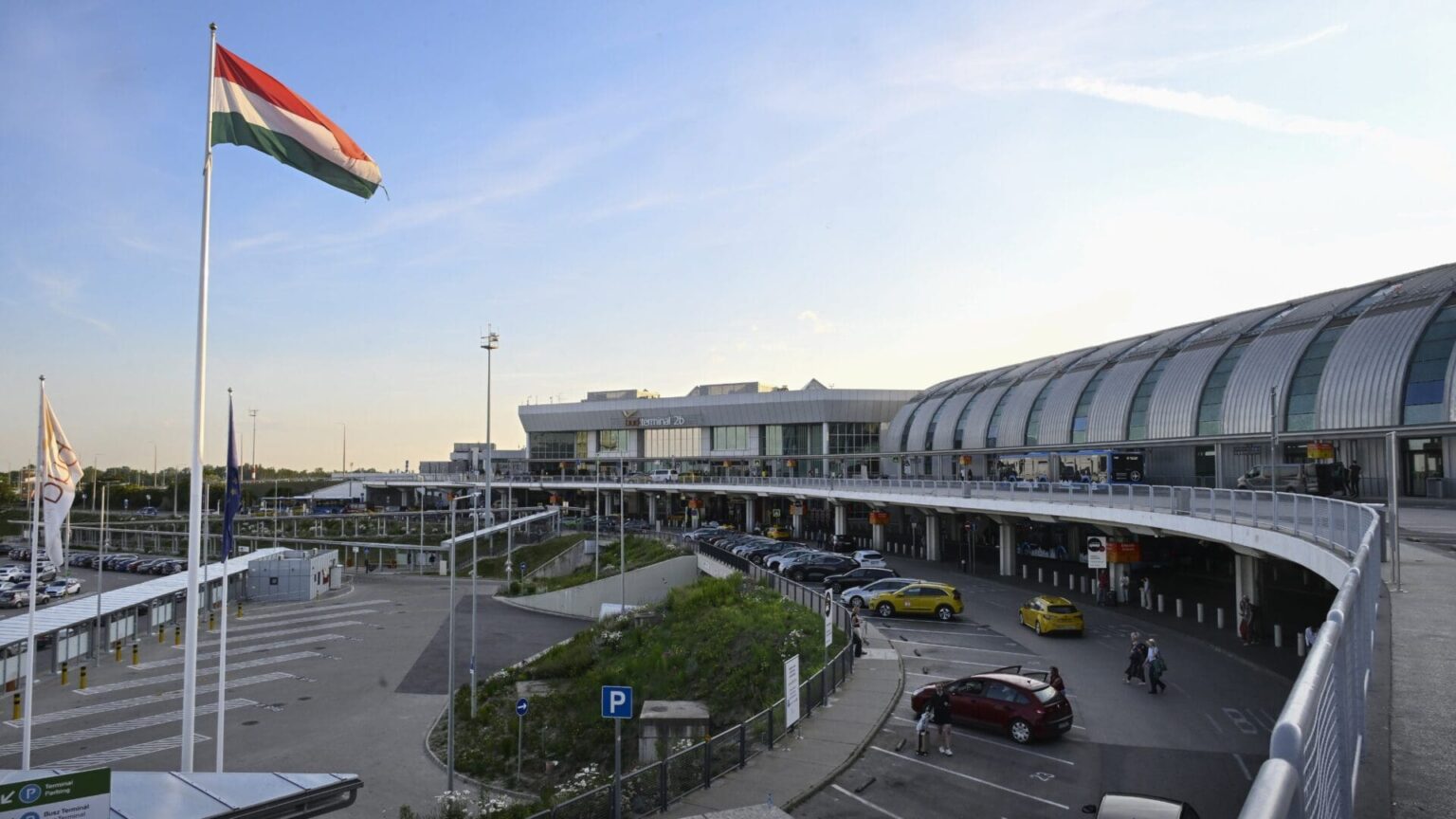
While the 2024 travel season continues, Liszt Ferenc International Airport is already preparing for 2025, when it will celebrate its 75th anniversary with a series of special cultural events. The celebrations will not only commemorate the airport’s history but also honour the life and work of composer Franz Liszt, whose name the airport proudly bears since 2011.

At the InnoTrans 2024 International Transport Exhibition in Berlin Hungarian state railways MÁV, MÁV-START, and the Austrian Federal Railways (ÖBB) signed a cooperation agreement to enhance passenger and freight services. The agreement aims to reduce travel times on the Budapest–Vienna route and improve collaboration in technical areas, promising a faster, more efficient rail network by 2028.